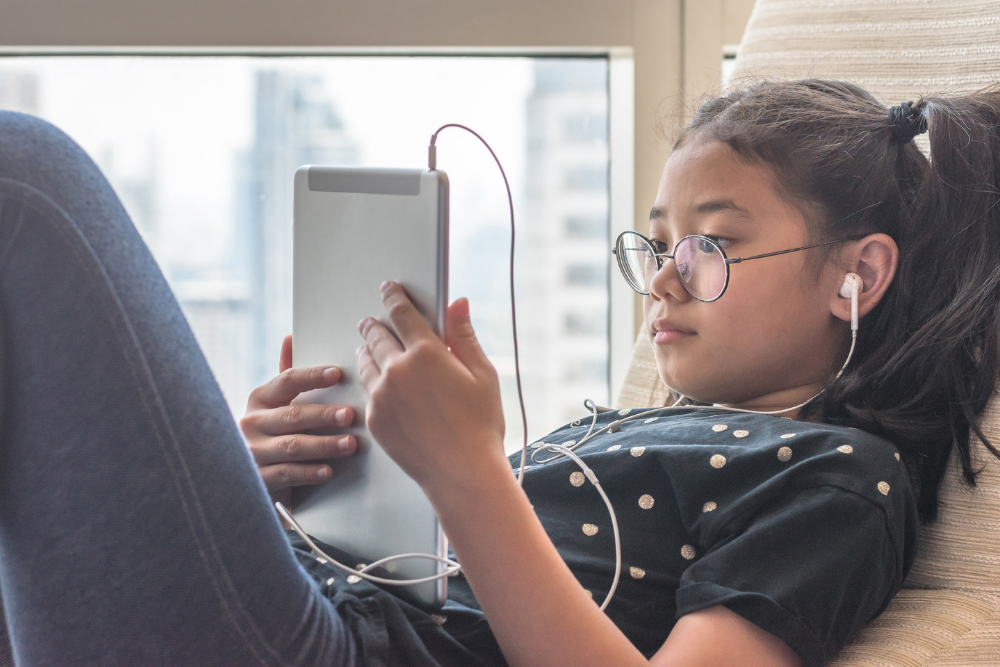There are many important issues that parents know they need to talk to their kids about. Drugs. The importance of a good education. The birds and the bees.
One thing that probably flies right past most parents’ radars is Copyright law.
Why in the world would you want to talk to your children about copyright law? Because kids — and honestly, all of us, really — are encountering copyright issues on a daily basis whether we realize it or not.
Before the age of 18, countless kids create YouTube channels and websites. They create apps. They have social media accounts on which they post content. Many use not-so-legal services to download videos, music, and games. Plus, they engage in more traditional activities such as drawing pictures, writing stories, and so on.
Copyright plays a role in every single one of those activities. And if your children are not careful, they could end up having their own copyrighted material misused — or worse, violating copyright law themselves — without even realizing it.
What do kids need to know about how copyright works?
They Are — Almost Certainly — Copyright Owners
We tend to think of “copyrighted materials” as things that come from famous creative people and big companies. Movies. Novels. Artwork. Video games.
And this is true. They are copyright protected. But so are the vast majority of original creative works that all of us do on a regular basis. What is more, this is something that happens automatically the moment the work is created — no registration needed.
To put that in perspective, all those pictures your 4-year-old snapped on your smartphone? Copyright protected material. The sculpture your child made in art class is copyright protected art. The story they wrote in freshman English? Copyright protected material.
As Copyright Owners, They Have Rights
Once your child creates a protected material, they own it and others are restricted in how they can use it. Copyright owners possess rights over how their work is:
- Reproduced
- Distributed
- Publicly performed or displayed
The copyright owner also has power over any derivative works, as well as the ability to transfer any of these rights to others to allow them to use their work.
Because of this, even though registration with the US Copyright Office is not required in order to receive copyright protection, it is mandatory if you ever need to file a lawsuit in federal court to protect their copyright over a particular work. On a related note…
It’s Possible to Make Money Off of Their Copyrighted Material
Since they have rights over how their work is used and who can use it, they also have the ability to ask for money from those who wish to do so.
Now, chances are the opportunities for your child to make money off of most of their creative works will be limited. But you never know. Kids today are creating more and more sophisticated works, and all it takes is for one person to notice and take a liking to something.
They Use Copyrighted Works Every Day
Every time they open up a book, use an app, head to a website, play a video game, watch Netflix, and so on and so forth, they are using and interacting with copyright protected works.
These works are, quite simply, part of the fabric of our lives. We use them without thinking about it because it seems like they are just there for the taking.
But this is not the case. Somewhere along the line, someone paid for the use of those works in one way or another.
And if they didn’t pay, they are violating copyright laws and putting themselves in potential legal jeopardy. Which brings us to the next point…
It Is Really Easy to Violate Copyright Law
Does your kid have a blog? Tell them to be careful what images and videos they post on it. Though it may seem harmless, they can’t just use anything they find on the internet by doing a Google search. Do they have a YouTube channel? Similar issues can come up.
While most copyright owners are not going to waste time, effort, and money to punish everyone who illegally uses their material — especially children — this is not a guarantee. It often depends on the nature and extent of the violation.
Additionally, there are ways that they can use copyrighted works under Fair Use laws that protect them from legal action, but those laws can be complicated and confusing. And if they are ever unsure whether or not something can be used without violating copyright laws, they should not do it.
These basic concepts do not cover the entirety of copyright law, but they should give your children the basics they need to understand what it is, how it works, and why copyright law is important both for users and creators.
